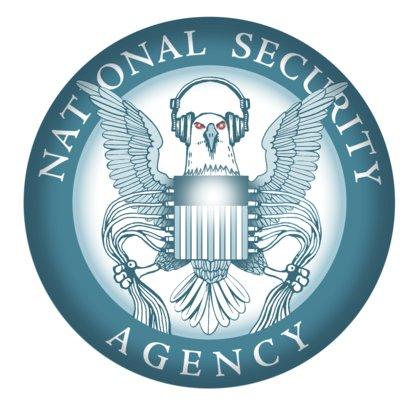This is big.
Again, Glenn Greenwald scores a hit. As noted below, the Bush Administration (through Hayden) now explains that the reason that wiretaps were sought outside FISA was because it couldn’t meet the "probable cause" standard.
Glenn discovered an historical, documented problem with this argument.
In June, 2002, Republican Sen. Michael DeWine of Ohio introduced legislation (S. 2659) which would have eliminated the exact barrier to FISA which Gen. Hayden yesterday said is what necessitated the Administration bypassing FISA. Specifically, DeWine’s legislation proposed:
to amend the Foreign Intelligence Surveillance Act of 1978 to modify the standard of proof for issuance of orders regarding non-United States persons from probable cause to reasonable suspicion. . . .
The Bush Administration submitted a statement, written by James A. Baker, the Justice Department lawyer who oversees that DoJ’s Office of Intelligence Policy and Review.
Did the Bush Adminsitration support the Dewine Amendment which would have lowered the standard of proof from "probable cause" to "reasonable suspicion"?
Hell, no! Here are the exact words from the Statement:
The Department of Justice has been studying Sen. DeWine’s proposed legislation. Because the proposed change raises both significant legal and practical issues, the Administration at this time is not prepared to support it.
So, in June, 2002, the Administration refused to support elimination of the very barrier ("probable cause") which Gen. Hayden claimed yesterday necessitated the circumvention of FISA.
In doing so, the Administration identified two independent reasons for opposing this amendment. You ready for this?
Reason one: the Justice Department was not aware of any problems which the Administration was having in getting the warrants it needed under FISA:
The practical concern involves an assessment of whether the current "probable cause" standard has hamstrung our ability to use FISA surveillance to protect our nation. We have been aggressive in seeking FISA warrants and, thanks to Congress’s passage of the USA PATRIOT Act, we have been able to use our expanded FISA tools more effectively to combat terrorist activities. It may not be the case that the probable cause standard has caused any difficulties in our ability to seek the FISA warrants we require, and we will need to engage in a significant review to determine the effect a change in the standard would have on our ongoing operations. If the current standard has not posed an obstacle, then there may be little to gain from the lower standard and, as I previously stated, perhaps much to lose.
Reason Two: The Justice Department expressed serious doubts as to the constitutionality of the lower standard!
The Department’s Office of Legal Counsel is analyzing relevant Supreme Court precedent to determine whether a "reasonable suspicion" standard for electronic surveillance and physical searches would, in the FISA context, pass constitutional muster. The issue is not clear cut, and the review process must be thorough because of what is at stake, namely, our ability to conduct investigations that are vital to protecting national security. If we err in our analysis and courts were ultimately to find a "reasonable suspicion" standard unconstitutional, we could potentially put at risk ongoing investigations and prosecutions.
By that time, the Administration had already been engaging in eavesdropping outside of the parameters of FISA, and yet the DoJ itself was expressing serious doubts about the constitutionality of that eavesdropping and even warned that engaging in it might harm national security because it would jeopardize prosecutions against terrorists.
Glenn adds the following:
Two other points to note about this failed DeWine Amendment that are extremely important:
(1) Congress refused to enact the DeWine Amendment and thus refused to lower the FISA standard from "probable cause" to "reasonable suspicion." It is the height of absurdity for the Administration to now suggest that Congress actually approved of this change and gave it authorization to do just that — when Congress obviously had no idea it was being done and refused to pass that change into law when it had the chance.
(2) DeWine’s amendment would have lowered the standard for obtaining a FISA warrant only for non-U.S. persons — whereas for "U.S. persons," the standard would have continued to be "probable cause." And, DeWine’s amendment would not have eliminated judicial oversight, since the Administration still would have needed approval of the FISA court for these warrants.
That means that, in 3 different respects, DeWine’s FISA amendment was much, much less draconian than what the Administration was already secretly doing (i.e., (a) lowering the evidentiary standard, (b) eliminating judicial oversight, and (c) applying these changes not just to non-U.S. persons but also to U.S. persons). Thus, Congress refused to approve — and the DoJ even refused to endorse — a program much less extreme and draconian than the Administration’s secret FISA bypass program.

